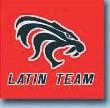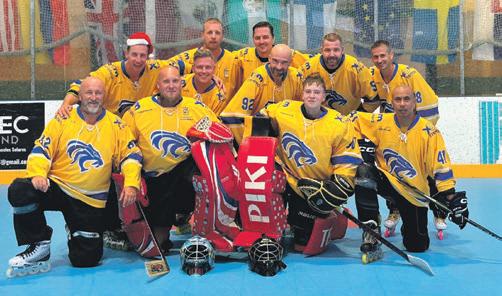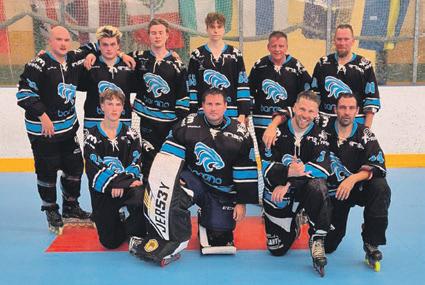





















EVERY year thousands of parents type the same question into search engines: ‘best schools on the Costa del Sol’. But in 2025, what does ‘best’ really mean?
For some families it’s about academic results or a specific curriculum. For others it’s about character, confidence and the ability to think independently. The truth is that the top schools today share one quality above all others: they prepare children for real life.
Across the Costa del Sol there are schools that combine strong academics with personal growth, cultural awareness and well-being.
The region’s international schools offer globally recognised qualifications, while Spanish public schools provide deep cultural immersion and bilingual fluency. Between them lies a world
of choice, from creative Montessori classrooms to structured British, American and International Baccalaureate programmes. What defines excellence is shifting.
The best schools are no longer judged only by exam tables but by how they nurture curiosity, creativity and compassion. They focus on skills that matter in a world shaped by technology and change: the ability to question, to adapt and to collaborate.

located close to some of the Costa del Sol’s most desirable areas to live.
Few places in Europe offer the same educational diversity as the Costa del Sol. Parents can choose from Spanish state schools, bilingual academies and prestigious international colleges, many
For newcomers the options can feel exciting and full of possibility, and that variety is one of the region’s greatest strengths.
Each type of school brings its own advantage. Spanish state education provides local identity, language fluency
and a sense of belonging within the community. International schools offer continuity for families from abroad, with familiar systems and a multicultural mix that helps students grow into global citizens.
Private bilingual schools bridge the two worlds, giving children confidence to move easily between cultures and languages. Beyond academics, schools here are known for their commitment to creativity, well-being and outdoor learning. Art, music and sport are part of everyday life. The Mediterranean climate invites lessons to spill into the open air, from science projects on the beach to drama rehearsals under the sun. Learning feels active and connected to the envi-
ronment. For families relocating to the Costa del Sol, this choice allows education to reflect personal values.
Some may seek a rigorous academic path, others a more holistic or flexible approach. You might prefer a traditional British-style prep school, a modern American campus or a small Spanish village school rich in community spirit. Whatever the setting, the shared goal is clear: to open minds, build confidence and prepare children for a bright, balanced future.
Ultimately, the best school is the one where your child feels inspired, supported and happy to learn.
On the Costa del Sol, that choice is broader and more rewarding than ever, making the region not only a wonderful place to live but one of Europe’s most exciting places to grow and learn.

THE International School Estepona was established in 2004 and is located in El Paraiso, Estepona and is currently home to just over 100 children from two-12 years. The School has its own car park. The ISE follows the National Curriculum of England and Wales with English being the first language. It is monitored by The British Council on a regular basis. The School is the only member of the National Association of British Schools in Spain (NABSS) in Estepona and is fully approved as a British School by the Junta de Andalucia Education Department. Spanish is taught as
a second language with lessons lasting one hour per day.
The School prides itself in being a welcoming nurturing environment for children from all over the world.
The ‘Community Spirit’ is very noticeable especially during major events such as ‘the School Play’ and annual ‘Sports Day’ which all parents and relatives are invited to.
All staff are fully qualified and there are class room assistants to help in the delivery of the Curriculum. Children’s progress is closely monitored and a termly report is provided on a regular basis. Extra help with the English Language can

be provided if required.
The School also has regular field trips to local places of interest which the children thoroughly enjoy.
Sport and PE is a regular part of the School week on Tuesdays and Thursdays. This includes sports such as Football, Rounders and Cricket to name but a few.
The older children in Year 6 are adequately prepared for Secondary School to ensure a smooth transition into their next phase of education.
The teachers are constantly available to discuss concerns and progress by making an appointment. All parents have their class teacher’s
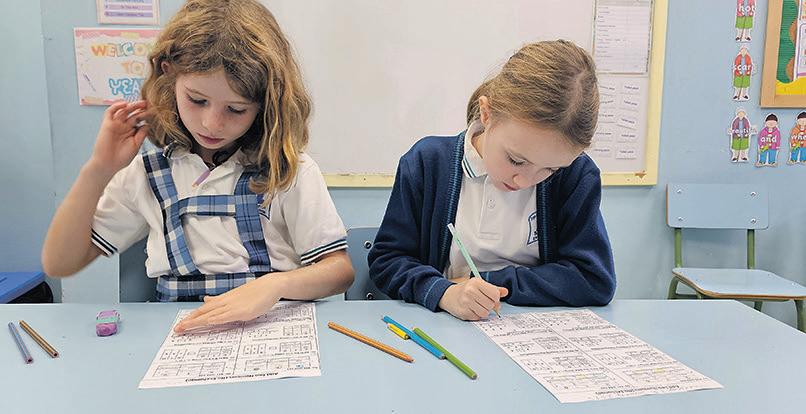
MOVING your child into a Spanish public school is one of the biggest steps for expatriate families. It’s exciting and rewarding, but can also be full of surprises. Here are the three things parents most often mention.
• A new school calendar
One of the first surprises is the school calendar. Unlike regular half-term breaks, Spanish schools run on longer stretches, with the long summer holiday dominating the year. Fortunately, many town halls and schools offer subsidised holiday camps that are far more affordable than in the UK.
These include sports, games and even pool parties, and are great for language immersion, helping children make international friendship groups from the start.
• Homework starts early Spanish pupils begin receiving homework from a young age, often linked to regular classroom tests. It can take time to adjust, but it’s a good opportunity to support your child and show that you’re learning too. Don’t worry if early marks are low; by the end of the year, most children make strong progress. Repeating a year is also common in Spain and isn’t
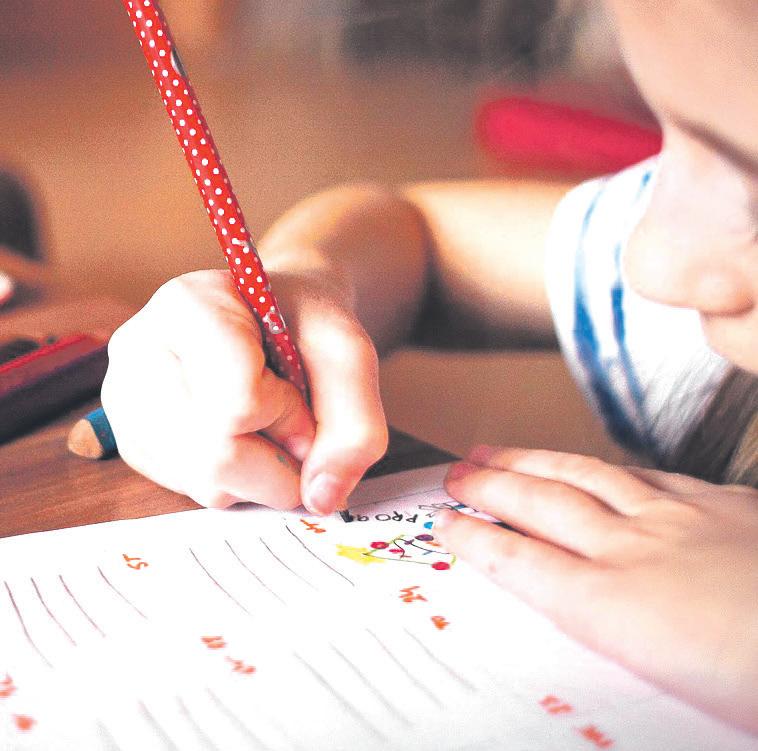
seen as a failure, but as recognition that children learn at different paces and a chance to consolidate learning before moving on.
direct email address.
Please feel free to visit www. marbellaschool.com for further information and also Facebook and Instagram to see recent news at the School. The School also uses the ‘Konvoko’ App to keep parents up-to-date on important announcements. Just Search ‘International School Estepona’ on the app.
The School has holiday clubs every school holiday including half term. More information can be found at marbellaschool.com and click contact us or WhatsApp +34 635 347 023
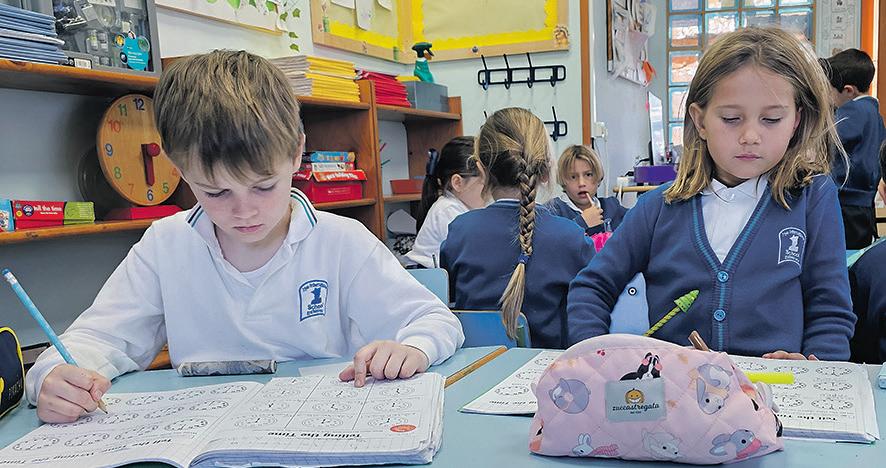
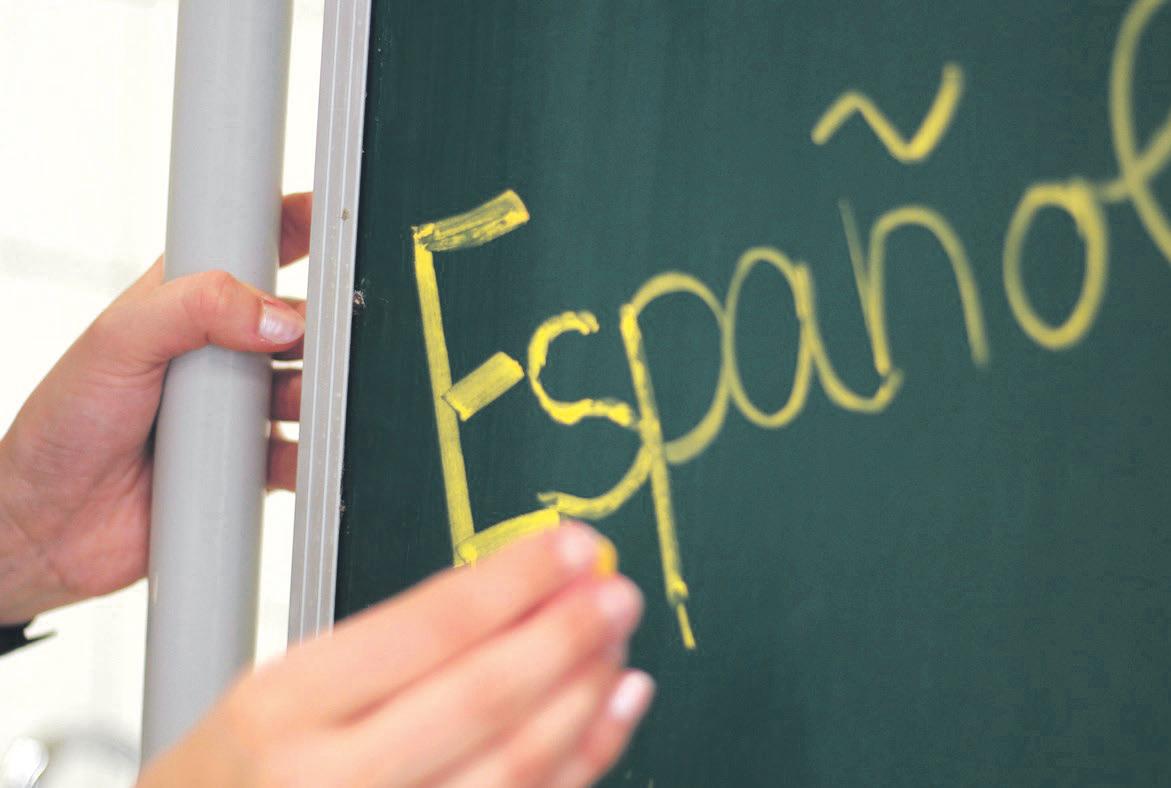
• Navigating school communication
Parent involvement looks a little different in Spain. Most communication happens through school apps and class WhatsApp groups, with one parent acting as the link between the teacher and other parents. Parents’ evenings are usually a mix of wholeclass meetings and one-toone tutorías with the class teacher. They can be tricky to follow
at first, especially if you’re still learning Spanish, but showing up and making an effort with the language will always be appreciated.
• Settling into school life There’s no doubt that life at the Spanish school gates can feel daunting at first, but it’s a fantastic way to connect with your community and it will quickly become your new normal. Before you know it, your family will be part of school fiestas, seasonal events and end-of-year performances.

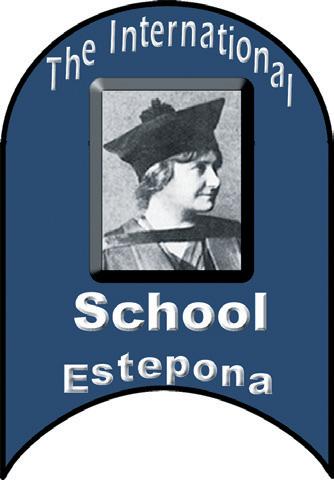






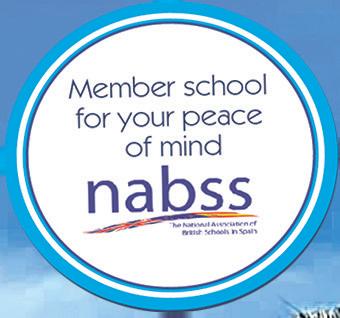
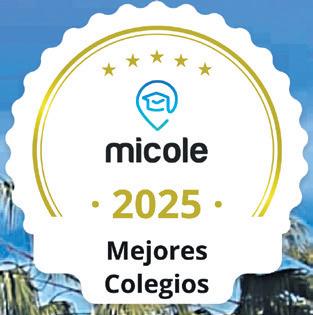
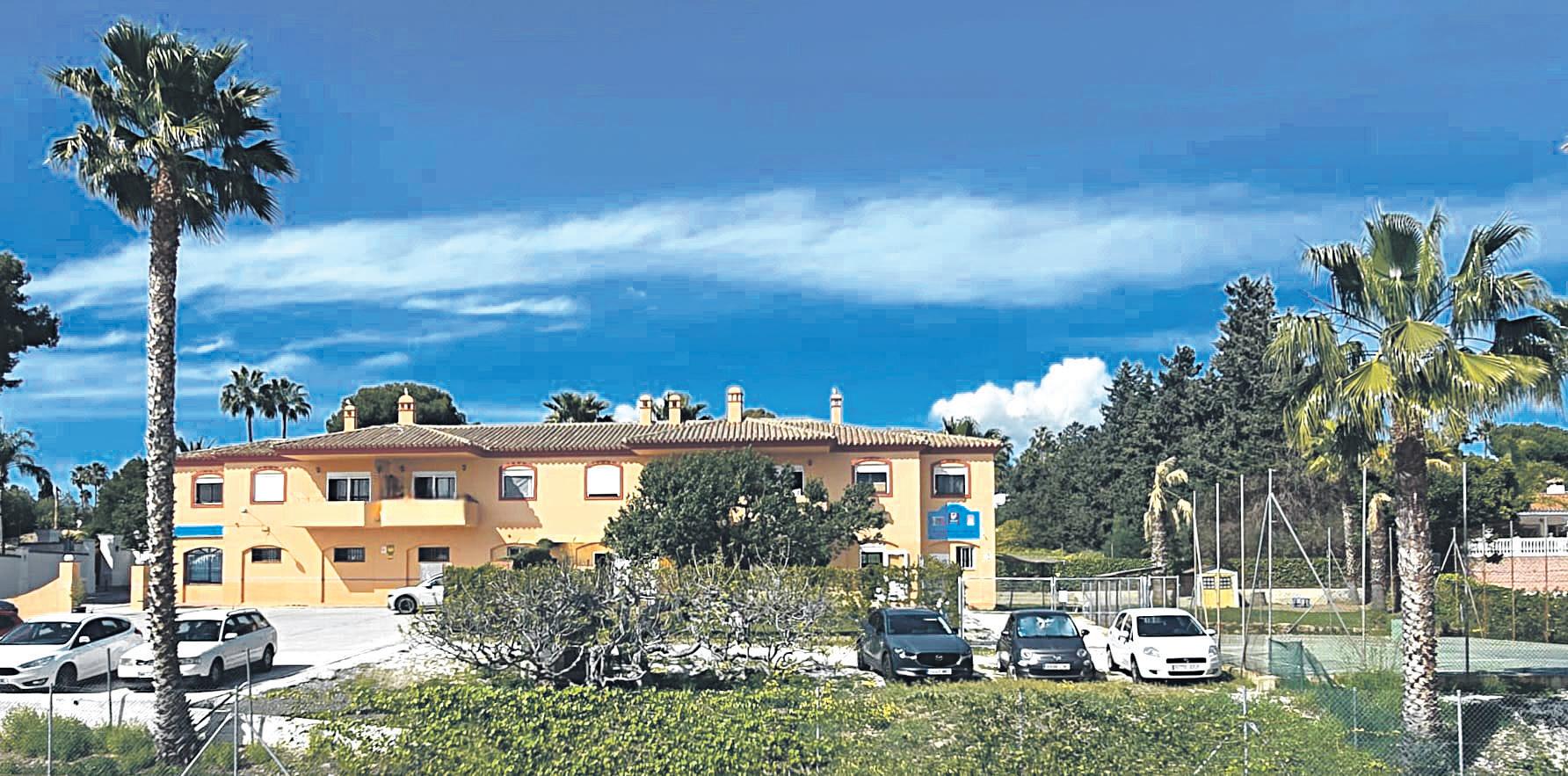
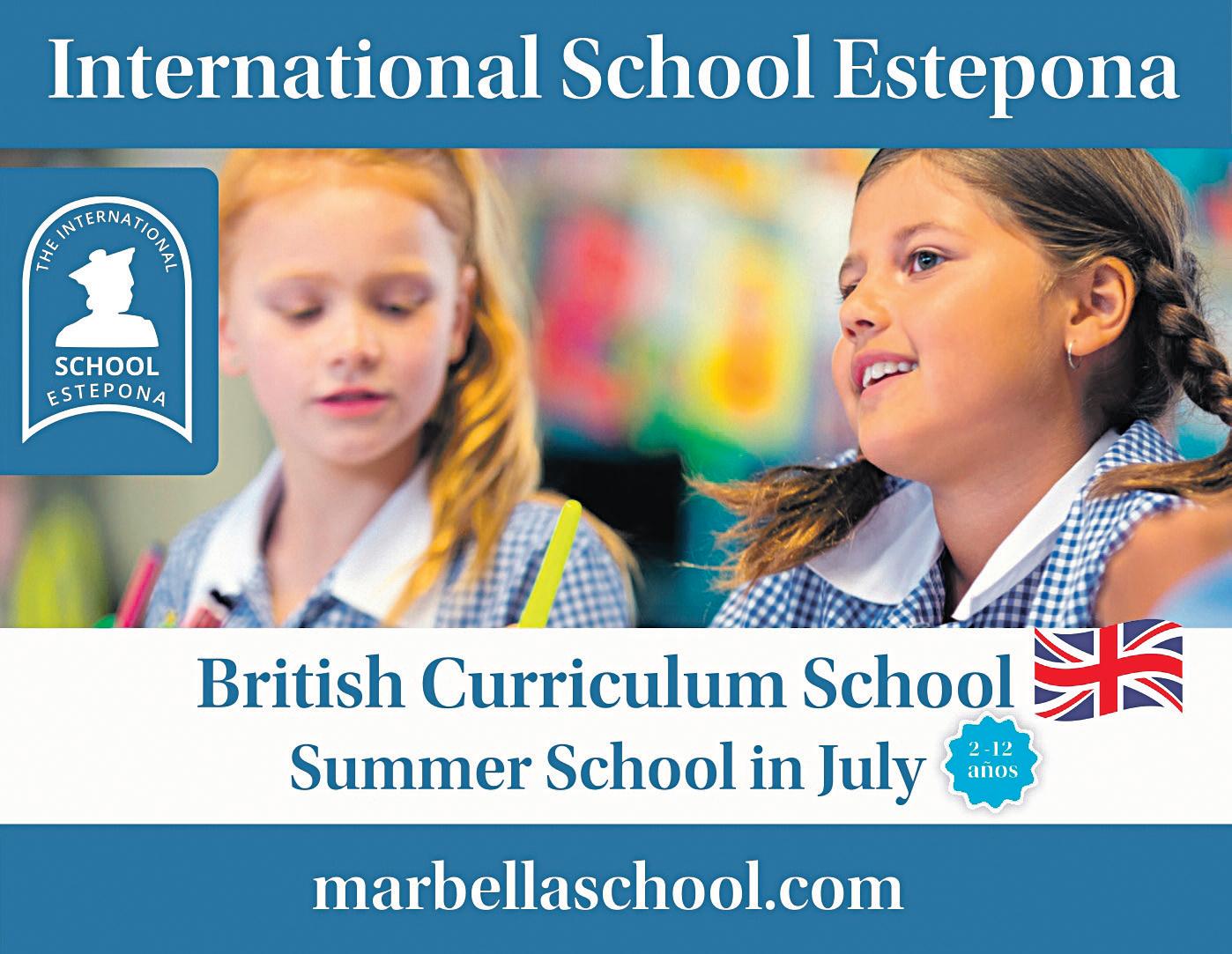


LOCATED in the leafy La Alzambra / Nueva Andalucia area, just minutes from Puerto Banus, Svenska Skolan Marbella offers families a truly unique blend of Scandinavian values and Mediterranean charm. Since opening its doors in 2003, the school has grown from a small, pioneering project with 15 pupils to a thriving international community of around 200 students today - a testament to its outstanding reputation.
This accredited Swedish school provides education from preschool (ages three to five) through primary, following the Swedish national curriculum. For older students, the school combines Sofia Distans and Hermods Distansgymnasium programmes with on-site support, ensuring a seamless continuation of academic excellence.
One of only 14 Swedish schools abroad approved by the Swedish National Agency for Education, Svenska Skolan Marbella is also fully authorised by the Junta de Andalucía,
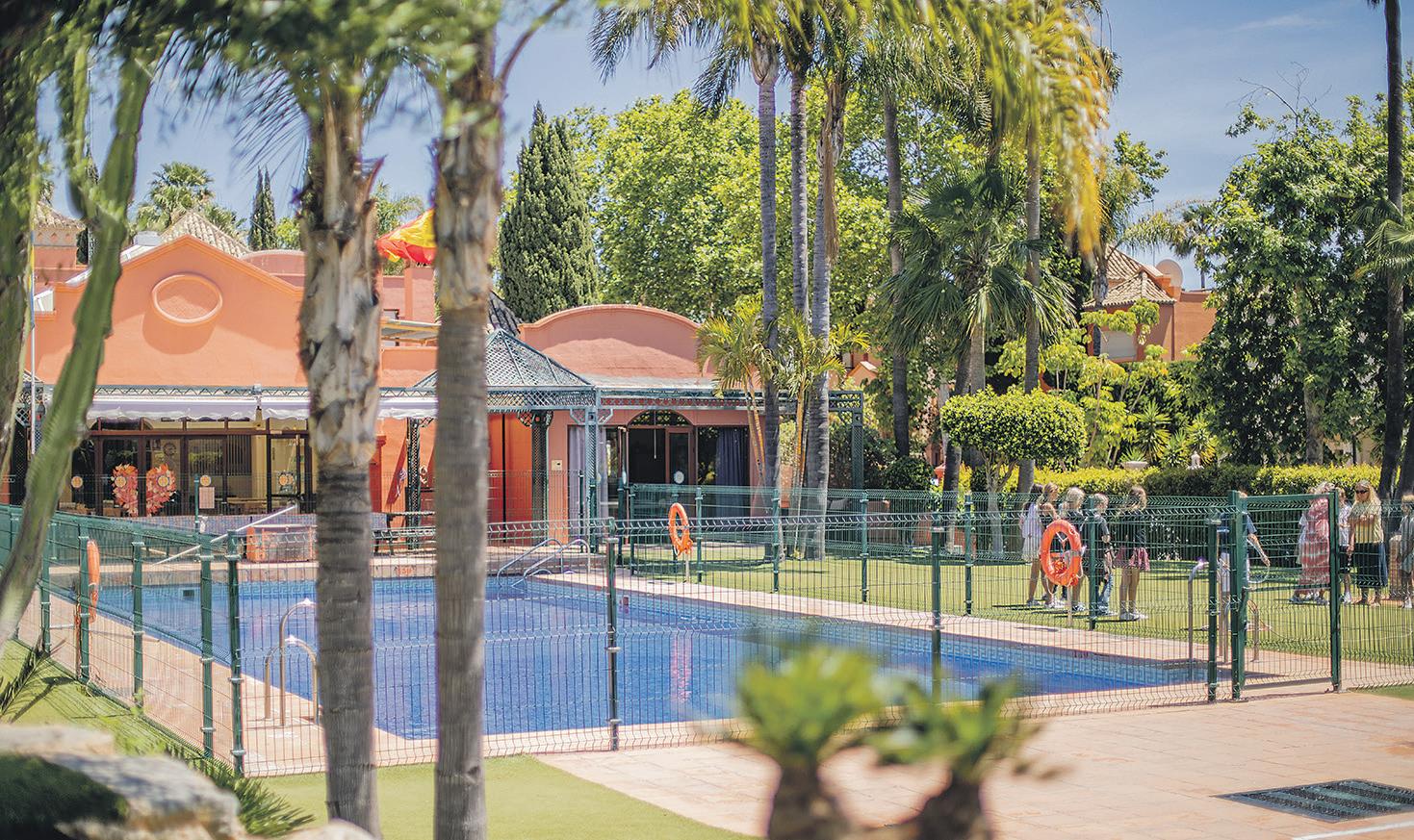
ensuring both international standards and local recognition.
This dual accreditation gives families peace of mind, whether they plan to stay in Spain longterm or eventually return to Sweden or move elsewhere.
The school embraces a trilingual approach from the
SPANISH international schools are making their mark on the global stage, following the announcement of the shortlist for the Tes Awards for International Schools 2025. Often described as the ‘Oscars of education’, the awards celebrate excellence across international schooling and recognise the remarkable work of teachers, leaders, and support staff worldwide.
This year saw a record 578 entries from schools across multiple continents, with judges selecting outstanding finalists across categories such as community engagement, sustainability, well-being, leadership, and innovation in teaching and learning.
Spain is proudly represented on the shortlist, with three schools receiving well-deserved recognition. Agora Lledó International School
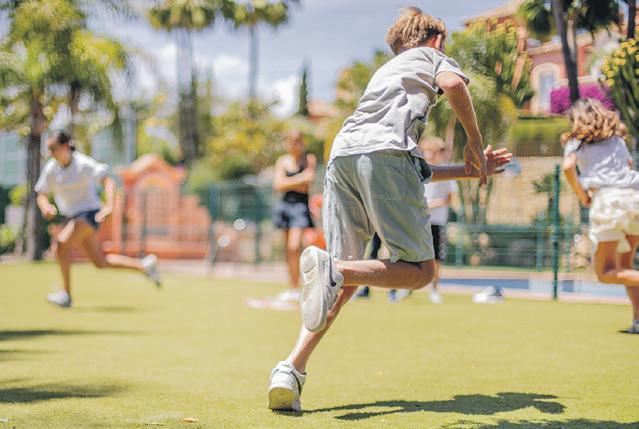

(Castellon) has been shortlisted for Community Engagement Initiative of the Year for its inspiring work strengthening connections between students and the wider community.
Mallorca International School (Mallorca) is a finalist for the Sustainability Award, highlighting its commitment to environmental responsibility in education. Meanwhile, ELIS Villamartín (Alicante)
has earned a place on the shortlist for Student Mental Health Initiative of the Year, recognising its dedication to supporting student well-being. Winners will be announced on December 9 via a Tes YouTube broadcast. Regardless of the final outcome, Spain’s presence on this prestigious shortlist reflects the innovation and ambition thriving in the country’s international school sector.
IN Spain, you may come across an organisation called the Asociación de Madres y Padres de Alumnos (AMPA) at your child’s school. It’s the Spanish equivalent of a Parent-Teacher Association in the UK.
An AMPA brings together parents or legal guardians who volunteer to support the school community. Its main aim is to encourage family participation in school life, support students and staff, and strengthen cooperation between home and school.
What does the AMPA do?
Most parents recognise the AMPA for organising social events, fairs and seasonal celebrations that build community spirit within the school.
But it also gives parents a stronger voice. AMPAs work closely with school leadership to represent families’ interests, share ideas and raise concerns, helping to improve communication and student life.
How do I join?
Joining is usually straightforward and most families are invited at the start of the school
earliest years. Swedish remains at the heart of daily life, while English and Spanish are integrated naturally into the curriculum.
This multilingual foundation equips students to flourish in a global world.
The campus itself is bright, modern and designed to inspire.
Classrooms are spacious and filled with natural light, complemented by gardens, a swimming pool, a football pitch, padel courts and generous play areas surrounded by greenery. It’s a setting that encourages both learning and play, within walking distance of parks and the beach.
Above all, Svenska Skolan Marbella stands out for its warm, communitycentred atmosphere.
Every child is valued as an individual, supported to grow with confidence, curiosity and respect for others - key pillars of the Swedish educational ethos.
Discover more at www. svenskaskolanmarbella.com
year. Many AMPAs ask for a small voluntary contribution or annual fee, and it’s worth joining even if you can’t always give your time.
Simply complete the membership form and pay the fee if there is one. Members can attend meetings, vote for committee representatives and take part in activities. It’s voluntary, but highly encouraged.
Why it matters
Being part of the AMPA gives you direct links with the school, a voice in how things are managed and the chance to meet other parents. It’s also a great way to feel part of the local community, especially if you’re new to Spain.

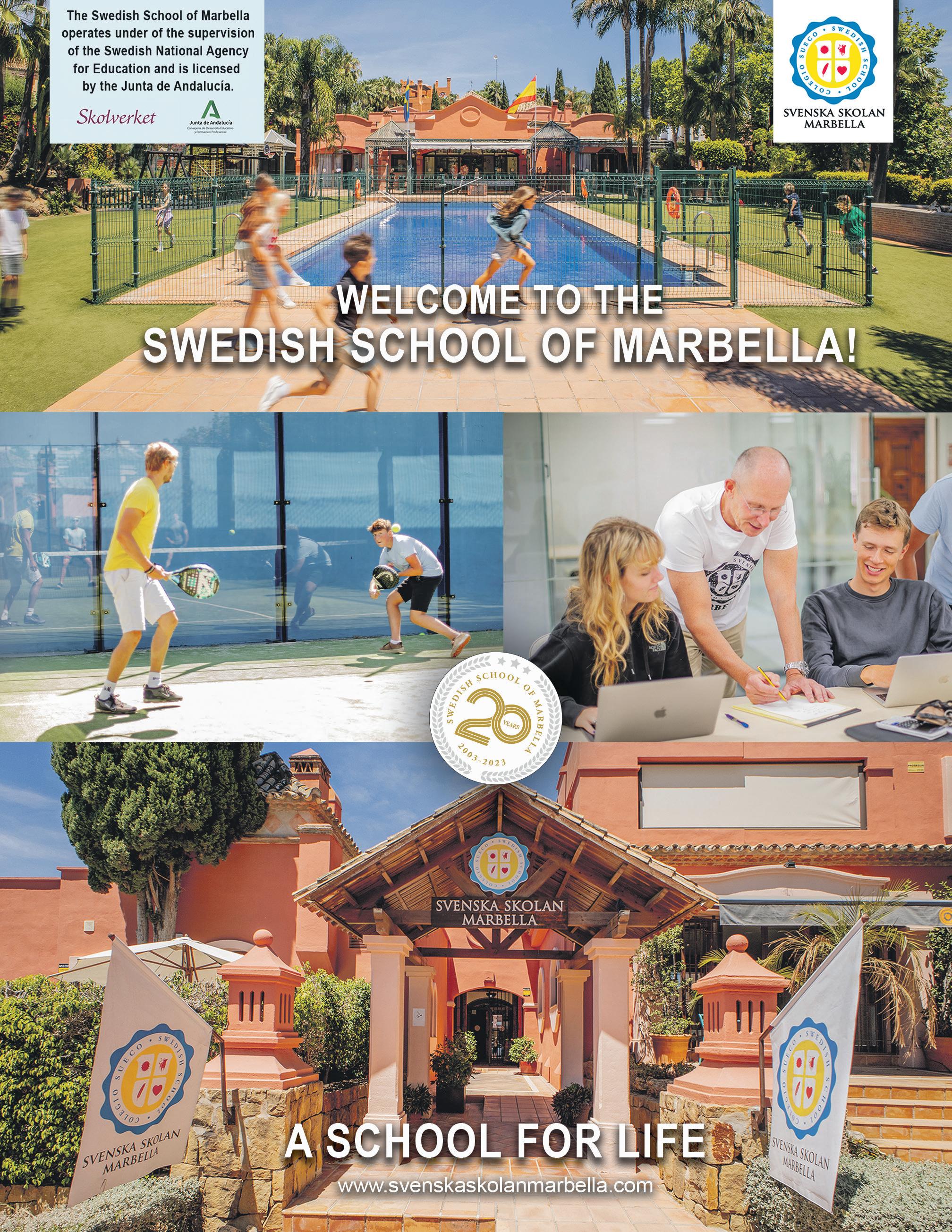
FOR children growing up abroad, language is not only the key to academic success - it is the gateway to making friends, understanding a new culture, and feeling a genuine sense of belonging.
At Laude San Pedro International College, we believe that multilingualism goes far beyond the ability to speak in several languages. It is a powerful pathway to developing cognitive flexibility, self-confidence, and true global awareness.
Grounded in research that supports the ISP Learning Pillar of Multilingualism, our approach recognises that learning more than one language enhances brain function, strengthens problem-solving skills, and improves overall mental agility.
Laude San Pedro is a British international school for students aged two to 18, where learners follow the British curriculum and take IGCSE and A Level examinations.
Additionally, we offer the Spanish Secondary and Bachillerato programmes, giving students access to universities both in Spain and around the world.

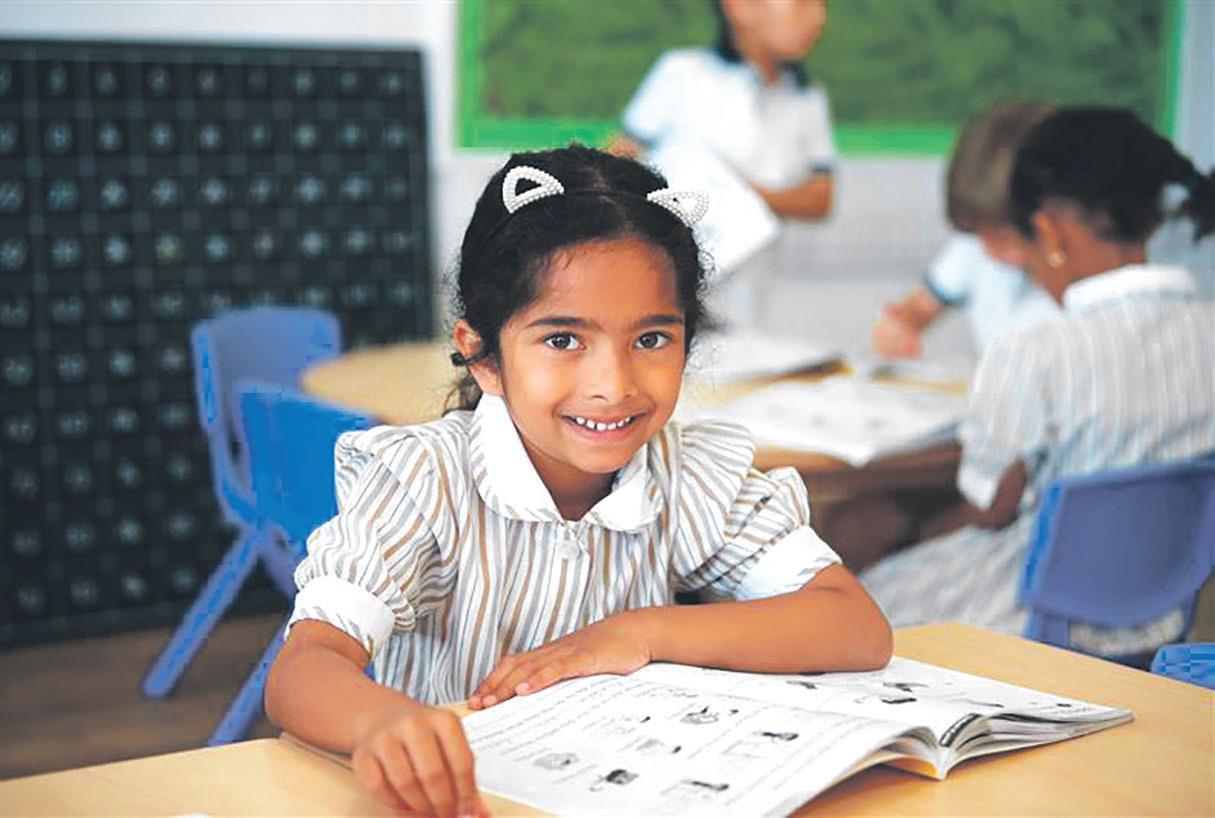
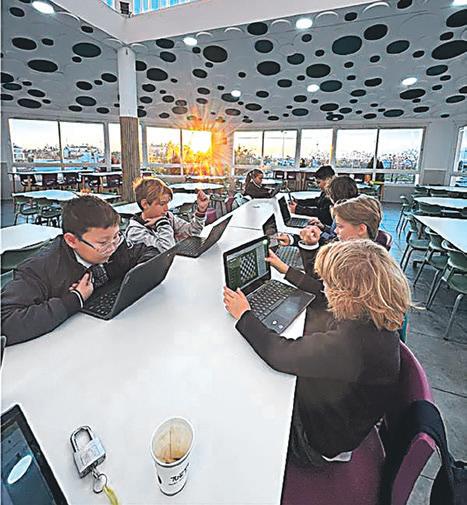
FOR families relocating to Spain, one of the greatest challenges is helping children adjust to a new language and education system. Parents often face difficult choices between public, private, or international schools. Public schools, or colegios públicos, offer a full Spanish-language curriculum, which can feel overwhelming at first for children who don’t speak the language. However, total immersion often leads to faster fluency.
Private and international schools, on the other hand, usually teach in both English and Spanish, following British or IB curricula, with language support available for newcomers. The downside is that these schools can be expensive and oversubscribed in popular
expatriate areas such as Malaga or Marbella.
Many families find that children adapt surprisingly quickly. Within a few months, most can follow lessons and socialise confidently in Spanish. Immersion, peer interaction, and supportive teachers help accelerate learning, although some children experience initial frustration or anxiety. Schools frequently provide extra tutoring, mentoring, or smallgroup lessons to ease the transition.
Parents can reinforce learning at home by encouraging Spanish in daily routines, watching local TV, reading bilingual books, or joining community activities. Sports clubs and hobby groups also help children practise Spanish in relaxed, social settings.
A distinctive strength of Laude San Pedro lies in our language support programmes for students who benefit from personalised English or Spanish reinforcement.
Our Mastering English Pathway is an intensive and tailored course designed to help students develop strong English
proficiency while simultaneously learning Spanish as a second language through an adapted, student-centred curriculum.
We know that a child who speaks their mother tongue at home, uses English in class, and chats in Spanish on the football pitch builds exceptional confidence and empathy - qualities that define a truly international learner.
At Laude San Pedro, we celebrate the diversity of languages, cultures, and nationalities that enrich our community. By embracing each student’s unique linguistic identity, we create a safe and inclusive environment where they can thrive.
Through our focus on life skills such as leadership, collaboration, and adaptability, our students become not only multilingual but also resilient, curious, and globally minded citizens ready to succeed in an ever-changing world.
Ç
Learn more: https://www.laudesanpedro.com https:// internationalschoolspartnership.com/ five-learning-pillars/multilingualism/
FOR many children on the Costa del Sol, switching between languages is as natural as breathing. In a region where Spanish, English and often a third language mix daily in classrooms and playgrounds, bilingualism isn’t a goal, it’s a way of life.
Photo credit: Anaile Parc/Shutterstock

When choosing a school, it’s vital to consider language support, curriculum compatibility, and the overall atmosphere.
With patience, preparation, and emotional reassurance, most children not only learn Spanish quickly but also grow in independence, confidence, and cultural awareness, thriving both academically and socially in their new environment.
With dozens of international and bilingual schools across Malaga Province, families from around the world find an environment where languages blend easily. A lesson might start in English, move into Spanish during discussion, and end with a classmate explaining something in French or German. Teachers say this mix encourages flexibility, confidence and curiosity from a young age.
Experts often point out that bilingual children develop stronger problemsolving skills and a deeper understanding of other
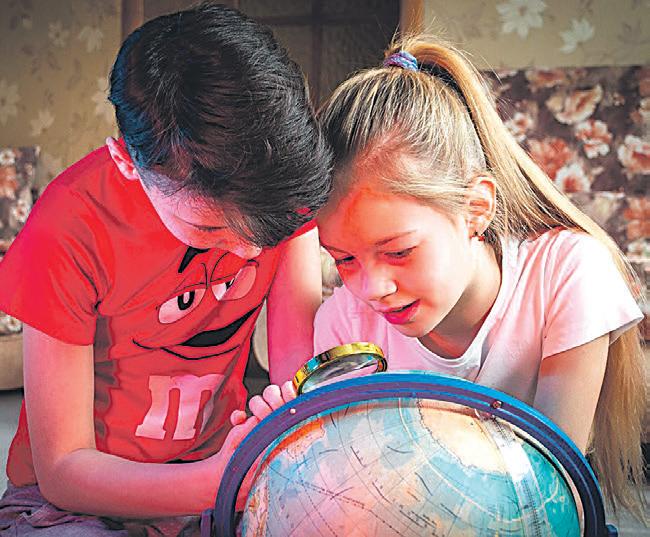
cultures. On the Costa del Sol, those advantages go well beyond the classroom. Children grow up ordering food, joining sports teams and making friends in more than one language, a daily exercise in communication and connection that builds independence and empathy.
For parents relocating here, the language question is no longer
just about which school system to choose. It’s about embracing an opportunity for children to learn, think and live in two worlds at once. The ability to shift easily between languages gives young people both confidence and cultural awareness. On the Costa del Sol, being bilingual isn’t just an academic skill, it’s a way to connect with the world.

THE Fuengirola LIONS continue to roar on the Costa del Sol! Recently, their four adult teams in the Andalucian League took to the Fuengirola Hockey Arena in Los Boliches, playing an exciting total of 10 games over one thrilling weekend. Competing in the Andalucia League the Lions teams - Knights, Vikings, Latin Team, and Blues, delivered a great display of skill, teamwork, and



Fuengirola LIONS special is their opendoor philosophy - hockey here is for everyone, regardless of age, nationality, or experience. With six junior age groups, ice hockey sessions at Palacio del Hielo in Arroyo de la Miel, and inclusive floorball games at Los Boliches School, there’s a place for everyone to play. The club even provides 30 full sets of equipment so newcomers and schools can try hockey or floorball with ease.
Beyond the sport, the LIONS community prides itself on diversity, friendship, and fun. It’s a welcoming

space where over 20 nationalities share one language - a love of hockey. With qualified coaches and a strong anti-bullying ethos, the club promotes teamwork, confidence, and well-being. Training runs Tuesdays and Thursdays (inline hockey), Mondays and Wednesdays (floorball), and occasional Sundays (ice hockey). Visit Fuengirola LIONS on Facebook, Instagram, or TikTok - and join the pride! fuengirolalions@gmail.com
FACEBOOK: www.facebook. com/ LionsHockeyFuengirola INSTAGRAM: www.instagram.com/ lionsinlinehockey
TIKTOK: www.tiktok.com/@




